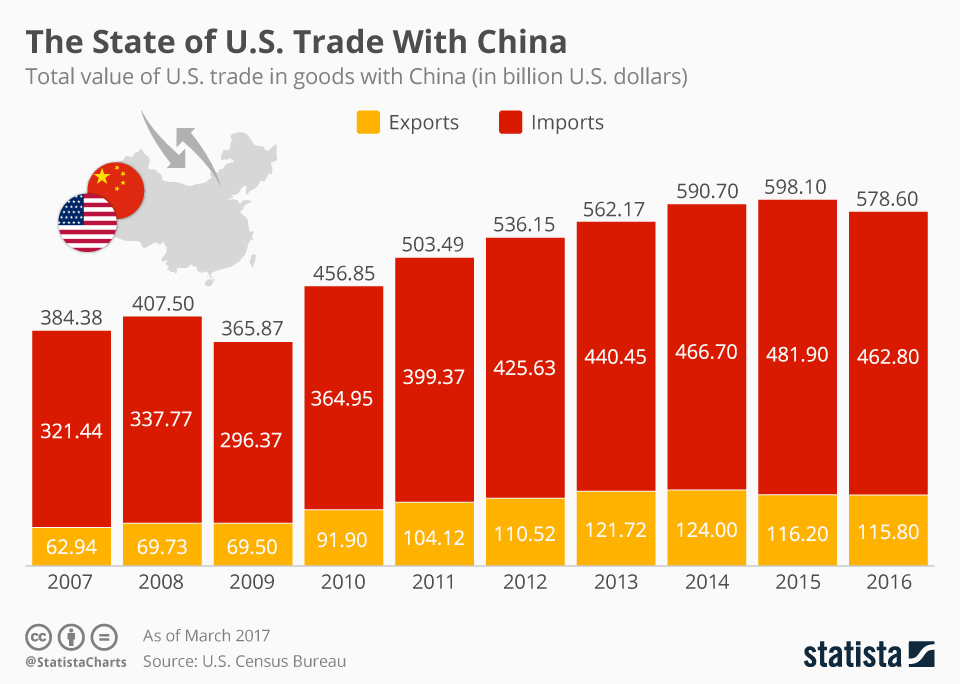The Economic Impact Of Trump's Tariffs On California: A $16 Billion Deficit

Table of Contents
Keywords: Trump's Tariffs California Economic Impact, California Tariffs Economic Impact, Trump Trade Policy California, Economic Effects of Tariffs California
Trump's tariffs inflicted a significant blow on the California economy, resulting in an estimated $16 billion deficit. This article delves into the devastating consequences across various sectors, highlighting the detrimental impact on agriculture, manufacturing, and the overall state economy. The repercussions extended far beyond initial trade disputes, triggering a ripple effect that continues to shape California's economic landscape.
<h2>Agricultural Sector Losses from Trump's Tariffs</h2>
California's agricultural prowess is globally renowned, but Trump's tariffs significantly hampered its success. Retaliatory tariffs imposed by other nations targeted key California exports, leading to substantial revenue losses and jeopardizing the livelihoods of countless farmers and agricultural workers.
<h3>Impact on California's Key Agricultural Exports</h3>
-
Almonds: Facing steep tariffs in key markets like China, California almond farmers experienced a sharp decline in exports, leading to plummeting prices and reduced profitability. Estimates suggest a loss of hundreds of millions of dollars.
-
Walnuts: Similar to almonds, California walnut growers faced significant challenges, with reduced demand and lower prices impacting their bottom line. Many farms had to scale back operations or absorbed losses.
-
Wine: The wine industry, a major contributor to California's economy, also suffered from increased tariffs in various international markets. This hindered exports and affected the overall profitability of wineries, both large and small.
-
Other Crops: Many other California agricultural products, including dairy, fruits, and vegetables, experienced reduced export opportunities and price drops due to retaliatory tariffs.
<h3>Increased Input Costs for Farmers</h3>
Tariffs on imported goods, including fertilizers, machinery, and packaging materials, significantly increased input costs for California farmers. This squeezed already thin profit margins, leading to:
- Reduced Profitability: Farmers faced escalating operational expenses, hindering their ability to maintain profitability and reinvest in their businesses.
- Farm Closures: The increased costs, coupled with reduced export revenue, forced some farms to close down completely, leading to job losses in rural communities.
- Reduced Employment: The economic pressure on farms resulted in decreased hiring and, in some cases, layoffs, negatively impacting farmworker communities.
<h2>Manufacturing Sector Struggles Under Trump's Tariffs</h2>
California's manufacturing sector, a vital engine of economic growth, also bore the brunt of Trump's tariffs. Disrupted supply chains and reduced competitiveness in global markets led to significant economic hardship.
<h3>Disrupted Supply Chains and Production</h3>
Tariffs increased the cost of imported raw materials and intermediate goods, severely impacting California manufacturers.
- Increased Production Costs: Higher input costs led to a surge in production expenses, making California-made goods less competitive both domestically and internationally.
- Reduced Production Levels: Some manufacturers were forced to reduce production levels due to higher costs, resulting in job losses and reduced output.
- Supply Chain Bottlenecks: Tariffs disrupted established supply chains, causing delays and shortages of essential components for many manufacturers.
<h3>Reduced Competitiveness in Global Markets</h3>
The increased cost of production, combined with retaliatory tariffs, severely reduced the competitiveness of California-made goods in global markets.
- Loss of Market Share: California manufacturers lost significant market share to competitors in countries not affected by the tariffs.
- Reduced Export Revenue: The decline in exports led to reduced revenue and profit for California businesses.
- Job Losses: The inability to compete effectively in international markets resulted in job losses within the manufacturing sector.
<h2>Ripple Effects on the California Economy</h2>
The negative consequences of Trump's tariffs on the agricultural and manufacturing sectors extended throughout the California economy, leading to broader negative economic consequences.
<h3>Job Losses and Unemployment</h3>
The combined impact of tariffs on various sectors led to significant job losses across California. Reliable data from the Bureau of Labor Statistics (BLS) would provide concrete figures to support this claim. This led to:
- Increased Unemployment: The job losses contributed to higher unemployment rates in several regions across the state.
- Reduced Consumer Spending: Job insecurity and reduced incomes dampened consumer confidence, leading to lower levels of consumer spending.
<h3>Reduced Consumer Spending and Economic Growth</h3>
The increased prices of goods due to tariffs directly impacted consumer spending and, subsequently, California's economic growth.
- Decreased Consumer Confidence: The uncertainty caused by the tariffs and rising prices negatively impacted consumer confidence.
- Lower GDP Growth: The reduced consumer spending contributed to lower Gross Domestic Product (GDP) growth rates for California.
- Reduced Investment: Businesses were more hesitant to invest in expansion or new projects due to the uncertain economic climate.
<h2>Conclusion</h2>
Trump's tariffs inflicted a significant and lasting blow to the California economy, resulting in an estimated $16 billion deficit. The agricultural and manufacturing sectors were particularly hard-hit, experiencing substantial losses in exports, increased input costs, and job reductions. These difficulties led to a ripple effect impacting consumer spending, economic growth, and overall employment across the state. Understanding the full economic impact of Trump's tariffs on California is crucial for shaping future trade policies. Learn more about the devastating consequences of protectionism and advocate for sensible trade agreements that benefit California’s economy. Further research into the long-term economic effects of Trump's tariffs on California is vital to preventing similar economic setbacks in the future.

Featured Posts
-
 First To 10 Wins Padres Top Athletics In Mlb
May 15, 2025
First To 10 Wins Padres Top Athletics In Mlb
May 15, 2025 -
 Nets Celtics Trade Scenario Would A Kevin Durant Deal Shatter The Nba Balance
May 15, 2025
Nets Celtics Trade Scenario Would A Kevin Durant Deal Shatter The Nba Balance
May 15, 2025 -
 Dangerous Everest Ascent Plan Anesthetic Gas And A Week Long Climb
May 15, 2025
Dangerous Everest Ascent Plan Anesthetic Gas And A Week Long Climb
May 15, 2025 -
 Mumbai News Bombay High Court Upholds Dial 108 Ambulance Contract
May 15, 2025
Mumbai News Bombay High Court Upholds Dial 108 Ambulance Contract
May 15, 2025 -
 Rapportage En Aanpak Van Grensoverschrijdend Gedrag Bij De Npo
May 15, 2025
Rapportage En Aanpak Van Grensoverschrijdend Gedrag Bij De Npo
May 15, 2025
